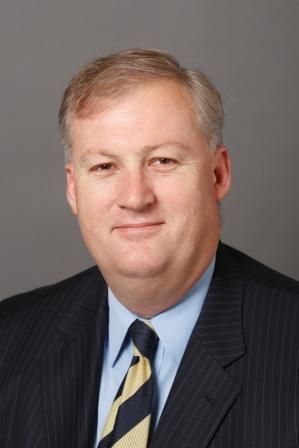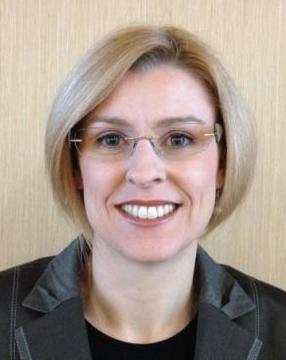
The Delivering Community Services in Partnership (DCSP) Policy is reforming the relationship between government and the community. Participants from across government and the community sector were amongst the audience who heard from organisation’s who are leading the development and implementation of the DCSP Policy and the accountability and evaluation frameworks being recommended.
Simone Spencer from the Department of the Premier and Cabinet kicked off the morning with the outline for the development of the DCSP Policy and how it is being implemented collaboratively between not for profit and government. Simone highlighted the DCSP Policy in supporting the use of preferred suppliers, however as long as they are still delivering services successfully and to the organisation’s mission. “Community sector organisations need to understand what they deliver and how much it costs.”
Kylie Towie from the Department of Finance continued the discussion with her role in supporting the Policy and getting the implementation right through free training sessions, resources and the Partnership Forum as a tool for social enterprises, government and not for profits to voice their concerns or issues. “This is the money you have – tell government how you can meet those service outcomes. It will create more innovative service models. 30 year contracts will no longer exist! That is not being innovative.”
The DCSP Policy highlighted some exciting changes for service delivery including reduced administrative burdens, flexible service design, more value and better outcomes for the community. Tom Tolchard, Terry Simpson and David Gilchrist highlighted the implications and risks of this Policy including price win over quality, loss of diversity in choice and local community control and effect of multi income streams such as philanthropic donations.
“If we have a strong and viable sector, we need to not wholly rely on government and use other streams of income to generate more funds to peruse the organisational mission” Mr Simpson said.
Topics Included
- Accountability and evaluation models for community services funding
- Delivering Community Services in Partnership (DCSP) Policy
- Lessons learnt from innovative service delivery models in the disability services sector
Presenters

Stimulating Social Enterprise Around the World
Tom Tolchard
Project Director
Social innovation in Western Australia (SiiWA)
BIO: Tom qualified in Business Strategy, Project Management and Developing World Economics in England but quickly defected to Australia in 1994 to seek his fortune in the sun. Tom possesses a commercial retail consulting background and has enjoyed representing international retailers in both the corporate and private equity sector. Tom’s first taste of social enterprise came through a chance volunteering experience whilst living in Melbourne. “I liked the philosophy of social enterprise so much that I quit my corporate job and plunged myself headfirst into the sector”. Many years later Tom has earned a strong reputation within the Australian social enterprise sector and enjoys building, managing and scaling social businesses.
ABSTRACT: Tom will address the drivers of success, his experience advising applicants for the Social Enterprise Fund and the global trends in government attempts to promote and support social enterprise.

Developments in the Governance Framework
Professor David Gilchrist MIPAA FAICD FCA
Industry Professor School of Accounting
Curtin University
BIO: David has been involved in the Government, Not-for-profit and Charitable sectors for two decades. He has worked in senior roles within the public sector in Western Australia and has consulted to various levels of government. He has also sat on a number of boards and committees relative to accounting and governance within the public and Not-for-profit sectors. David has taught accounting and finance at the London School of Economics and Portsmouth University in the UK and has taught at Curtin University and Edith Cowan University here in Western Australia.
ABSTRACT: In conjunction with National Disability Services, David has developed a model for pricing community services. He is also working closely with the public sector in the development of a governance framework. David will explore how the money being spent by the government will be accounted for by the community sector, what it means for each side of the fence, and what is likely to happen in the future.

Lessons Learned from the Disability Services Sector
Terry Simpson
State Manager (W.A.)
National Disability Services
BIO: Terry is the WA State Director of National Disability Services, the peak body for not-for-profit disability service organisations. He is a member of the State Government’s Partnership Forum and a key representative of the disability sector in the Government’s contracting reform process. He has previously occupied senior executive positions with the WA Government in the fields of community services and justice.
ABSTRACT: Terry will discuss his experiences of the disability sector in delivering government funded programs especially focussing on issues of governance and evaluation. He will explore how current government policies will affect capacity of the sector to deliver future programs.
Given the experiences to date, Terry will describe what an ideal DCSP implementation might look like.

Developing DCSP: Seizing the Opportunity to Build Upon Early Success
Simone Spencer
Director, Strategic Issues
Department of the Premier and Cabinet
BIO: Simone has had a long involvement with the current Government / Community sector reforms, acting as the Head of the Economic Audit Committee Secretariat and leading the development of the Delivering Community Services in Partnership Policy while working at the Department of Treasury and Finance. In her current role as Director, Strategic Issues at the Department of the Premier and Cabinet, Simone is leading implementation of key aspects of the Partnership Forum reform agenda including cross-sector policy development, self-directed services and enhancing the funding and contracting partnership between the public and not-for-profit sectors.
ABSTRACT: Simone will explore the Focus of the Partnership Forum and its implementation strategies to enhance strategic engagement between the not-for-profit and public sector. She will also explain the development of the Delivering Community Services in Partnership Policy (DCSP) and its challenges including testing the capacity of both sectors to live the Partnership Forum principles. Having worked hard to negotiate a funding package to address sustainability issues across the sector ($600 million) it was critical that a policy be put in place to avoid those sustainability issues from re-emerging in the future. The Policy provides enormous opportunity for both sectors to engage in a more productive relationship that maximises outcomes for the community. The challenge will be in seizing that opportunity and dealing with cultural issues from the past that may prevent a partnership maturing into the future.

Implementing DCSP: The Next Step
Kylie Towie
Director, Funding and Contracting Services
Department of Finance
ABSTRACT: Kylie will provide an update on the work her unit, Funding and Contracting Services (FaCS), within the Department of Finance, has undertaken in supporting the implementation the DCSP Policy and the road ahead as the funding and contracting procurement reforms continue. Kylie will focus on the manner in which, one year into the reform program, FaCS is engaging with both the community and public sectors with particular emphasis on the continual improvement of funding and contracting processes in accordance with the key themes of the DCSP Policy, in particular reducing the administrative burden.
















